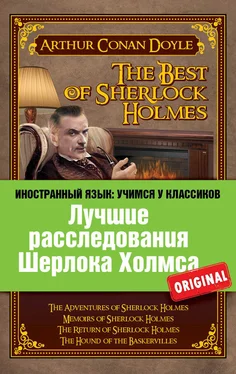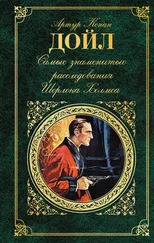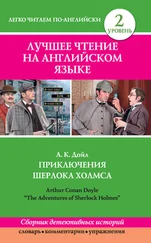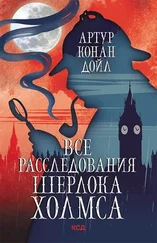351
Edison – Thomas Alva Edison (1847–1931) was an American inventor and businessman. Among many other devices he invented a long-lasting electric light bulb. Here “Edison” means electricity lights.
352
Crenellatedmeans “having battlements, stony ‘teeth’ on a wall or tower top.”
353
A minstrels’ galleryis a sort of inner balcony situated in the great hall of a castle or manor house. It was the place where minstrels (and other musicians later on) used to perform, hidden from the eyes of the guests below. The minstrel’s gallery is mentioned to underline the mediaeval origins of the building.
354
Copsesare bunches of trees, gardened via method of coppice, that is, cutting trees repeatedly to the basic stool, whence many new sprouts emerge, making a copse denser.
355
scullery-maidwas an assistant to a kitchen maid. Her duties were to clean the scullery (dishes etc) as well as stoves, sinks, and the kitchen floor, and to assist the cook. As the work was really hard, scullery-maids were usually young girls.
356
ruse= trickery, deception; originally it was a hunting term that meant a roundabout path taken by fleeing game (from ruser ( Old French ))
357
Undulatingmeans terrain having a wavy surface.
358
Rollersare parallel wavy gentle hills and slopes; similar to undulating, but more arranged.
359
surge – terrain with rougher waves of hills and pits
360
yonder= being at a distance within view or at a place or in a direction known or indicated; over there.
361
By George – the phrase is a mild oath or exclamation that dates from the early 1600s. The word “George” here is a substitute for “God,” as are words like “golly,” “ginger,” “gosh,” and so on in other similar euphemistic oaths.
362
Neolithic man – no date. – Although Neolithic humans did inhabit the moors, Dartmoor stone ruins date back to the Bronze Age (2,300 to 700 B.C.).
363
Cyclopides – Cyclopide ( Latin ) is a skipper butterfly, known for its quick darting movements. Isn’t known to be found in Dartmoor.
364
Mare’s-tailis a creeping perennial herb found in shallow waters and mud flats. It roots underwater, but most of its leaves are above the water surface. It is not very high and has a multitude of small, spiky leaves along the stem.
365
Lepidoptera ( Latin ) means moths and butterflies, generally.
366
And yet the course of true love does not run quite as smoothly as one would under the circumstances expect. – The paraphrase of Shakespeare’s “A Midsummer Night’s Dream”: “The course of true love never did run smooth.”
367
Spoil-sportis one who ruins a pleasure.
368
At one’s wit’s endmeans clueless, not knowing what else to think.
369
worldly positionmeans “social status” ( archaic )
370
Lattice windowis a type of window with a framework into which (coloured) pieces of glass are fitted.
371
scaffold – here: mechanized gallows with a stage and a trapdoor, used for common capital punishment in the UK
372
hue and cry – in common law, it is a process by which the bystanders are summoned to assist in the apprehension of a criminal who has been witnessed in the act of committing a crime. Simply it means that anyone who knows about an escapee should note the authorities or provide an arrest themselves.
373
Guttering candleis a nearly burnt out candle with its wick almost flowing in a pool of wax.
374
Felonyis a type of crime for which the punishment in federal law may be death or imprisonment for more than one year. The name originates from an act on the part of a feudal vassal involving the forfeiture of his fee.
375
Coombe Traceyis a fictional name that contains a name of one of hamlets in Devon, Coombe , which comes from cwm ( Welsh ) meaning a type of valley. Tracey probably comes from real old town Bovey Tracey, situated on edge of Dartmoor, at the river Bovey, and founded by a Tracy. Town’s slogan is, “The Gateway to the Moor,” so it is an obscure reference to our story.
376
Écartéis a two-player card game originating from France, the word literally meaning “discarded.” It is a trick-taking game, similar to whist, but with a special and eponymous discarding phase.
377
Remington typewriterwas invented in 1867 by C. Sholes, C. Glidden, and S. Lewis. It was the first one that allowed to type notably faster that to write by hand, although not the first typewriter. Became commercialized by “E. Remington & Sons” since 1873, and introduced the QWERTY layout, as well as “Shift” button for switching upper– and lower-case letters (1878 model).
378
clean breast – to make a clean breast means to confess. Note that “breast” there is the seat of one’s emotions and secrets, one’s “heart.” To disclose the facts was to clean one’s heart of impurity.
379
The law is upon his side – in Victorian Britain a married woman had no means to defend herself against her cruel husband. She couldn’t even obtain a divorce without proof of both the extreme cruelty and adultery. A husband was entitled to get his wife back by force if she left him.
380
Confound them!= shame on them!, ruin them!
381
(Devon) County Constabularywas the Home Office (a Ministerial department of the Government of the United Kingdom responsible for immigration, security, and law and order) police force for the county of Devon until 1966.
382
Frankland v . Regina means a case of action “Frankland against the UK.” V. stands for “versus” (Latin word for “against”). Regina means “queen” ( Latin ), here: Queen Victoria who was to represent the UK as a monarch.
383
thumbed – to thumb = to leaf through the pages with one’s thumb
384
Schoolmastercould mean a male teacher in school, not necessarily an owner. If a schoolmaster owned the school, it was obviously a small private one, aimed for intense classical education, since boarding schools were large enough to have a headmaster and several schoolmasters. There were a few such schools those days.
385
Profession – here: teaching; to profess = to educate ( archaic )
386
Hark!= hear this!, listen! (from “hearken”)
387
Somersaultis a gymnastic jump with full turn head over heels.
388
jaunty= lively, confident, cheerful
389
at close gripsrefers to hand-to-hand fighting, or wrestling in tight contact with the opponent
390
Sir Godfrey Kneller(1646–1723) – the leading portrait painter in England in his lifetime, even the court painter to monarchs from Charles II to George I.
391
Sir Joshua Reynolds(1723–1792) – famous English portrait painter, promoter of the so-called “Grand Style” (idealization of the imperfect).
392
William Pitt(1708–1778) aka William Pitt the Elder – British Whig statesman who led Britain in several wars and tried to seek out diplomatic solution to American War of Independence. It is generally said that much of his power over the House of Commons resulted from his brilliant oratory.
Читать дальше
Конец ознакомительного отрывка
Купить книгу












